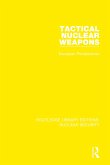This book identifies the different forms that protest voting can take in times when populism flourishes. Contrary to the popular view of protest voting as merely venting frustration, this book argues that protest voting can also be conceived of as a strategic signal of discontent, originating from sources, such as party policy positions. The empirical analyses rest on election survey data collected in democratic countries around the world between 2005 and 2017 to understand protest voting as a strategic signal, and the conditions under which it occurs. The main results show that protest voting can indeed be a strategic signal. This finding challenges the predominant view in the literature and the public discourse of protest voters as aimless, frustrated voters.
Bitte wählen Sie Ihr Anliegen aus.
Rechnungen
Retourenschein anfordern
Bestellstatus
Storno








